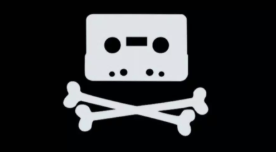 In August, Cox Communications filed a petition at the U.S. Supreme Court, requesting a review of the Fourth Circuit ruling that held the company contributorily liable for pirating subscribers.
In August, Cox Communications filed a petition at the U.S. Supreme Court, requesting a review of the Fourth Circuit ruling that held the company contributorily liable for pirating subscribers.
The Internet provider ultimately challenged the $1 billion jury verdict from 2019, which went in favor of the major record labels.
Labels Petition Supreme Court over Piracy Profits
As Cox petitioned the Supreme Court, the music companies filed their own petition, hoping to strengthen the verdict. Specifically, they argued that the ISP should also be held liable for vicarious copyright infringement.
In this case, and similar ones filed against Bright House and Grande, courts previously rejected the vicarious infringement claims, holding that there is no causal link between the pirating activities and the financial benefits.
The major record labels, including Sony and Universal, want the Supreme Court to take a closer look at the “profit motive”. They asked the Court to consider whether an ISP must profit directly from the infringement itself, or if profiting from the overall operation in which the infringement occurs is enough.
Repeat Infringers vs. Dance Halls
The music companies argued that Cox profited from subscription revenue it would not have otherwise obtained if it had terminated the accounts of customers who were repeat infringers. Between February 2013 and December 2016, Cox received $208 million in revenue from subscribers who received three or more piracy notices.
To support this argument, the music companies cited the dance hall cases, in which courts have held that the owners of venues can be held liable for copyright infringement committed by performers they hire.
The petition further cited the Supreme Court’s holding in Herbert v. Shanley Co. that a hotel could be held liable for the infringing performance of an orchestra it employed. The Court concluded that the hotel profited from the performance, even though visitors only paid for their meal, not the music.
Cox Opposes Petition
In an opposition brief filed this week, Cox asks the Supreme Court to deny the petition. According to the Internet provider, the plaintiffs present a “radical new theory” that would make service providers liable, simply because they offer Internet access.
“Under this theory, the plaintiff need not prove that the ISP is in the least bit culpable, that it knew about the infringement, or that it made a single extra penny because of the infringing activity,” Cox informs the Court.
“In other words, because Cox, like any ISP, has a financial interest in offering internet service to customers, it is liable for anything those customers do online. To state the argument is to refute it. There is no such form of liability—not in copyright law or anywhere else.”

Responding to the ‘hotel orchestra’ argument, Cox notes that in that case the infringing performance acted as a ‘draw’ for potential customers. There’s no such draw in this case, as pirated content is available though all ISPs, this reasoning suggests.
Cox stresses that the Fourth Circuit correctly rejected the vicarious copyright infringement allegations. It sees no reason for the Supreme Court to consider the case, arguing, among other things, that there is no real disagreement in lower courts on this matter.
As further support, ISP cites the Supreme Court’s holding in Grokster, which stated that vicarious liability requires proof that the defendant profited directly from the infringement. That’s not the case here, it notes.
Draconian Internet Police
In recent filings, Cox has put a lot of emphasis on the broader societal impact this case may have. If the labels have their way, it could mean that ISPs are ‘forced’ to terminate accounts of many thousands of subscribers, solely based on rightsholders complaints.
“ISPs would not only be required to execute mass internet evictions at the slightest allegation of copyright infringement, but they would need to police the internet and terminate users upon any hint or accusation of misconduct practices as invasive as they are draconian.
“That would imperil the livelihoods, safety, and social connections of a massive universe of downstream users who rely on internet connections to run businesses, pay bills, apply to jobs, read the news, connect with friends and family, petition their representatives, and attend school.”
A verdict that goes against Cox will also mean significant financial consequences for the ISP, hence the decision to fight the matter up to the Supreme Court.
If the Supreme Court decides to take on this case, it will undoubtedly result in a landmark decision; for Cox, for rightsholders, and for the public at large. The same is true for Cox’s petition, which is still under review.
—
A copy of Cox Communications’ opposition brief, filed Monday at the Supreme Court, is available here (pdf)
From: TF, for the latest news on copyright battles, piracy and more.
Powered by WPeMatico
